Just how good a Prime Minister was New Zealand’s recently retired John Key? I ask the question as a right-of-centre, small government, Hobbesian, majoritarian conservative, so my assessment will be from that vantage rather than from the Green-Left perspective spewed forth daily by virtually every single talking-head on ‘our’ ABC TV and radio.
Let’s begin this report card with a confession and a concession. I confess to having spent 11 wonderful years living in Dunedin, NZ, until moving across the Tasman with my family at the start of 2005. So I am today a citizen of both countries (plus Canada too). And I love both countries. I have also taught constitutional law in top universities in both NZ and Australia. That is a long-winded way of saying that from my present perch in Brisbane I am far from disinterested or indifferent to how NZ fares.
As for the concession, readers should know that many commentators consider John Key to have been a sort of gold standard centre-right leader by today’s standards. ‘As good as that breed gets these days’ would sum up many an outsider’s grading of Mr Key, and most especially by those reductionists who explicitly or implicitly believe that a country’s economy is all that really matters. Just get that right, goes this line, and culture, defence, international affairs and the rest are just peripheral matters that never outweigh pocketbook concerns.
I disagree with that ‘money does and should trump all else for voters’ presupposition. As a result I think Mr Key deserves a somewhat lower overall ranking for his time as NZ PM than the top grade many others are doling out to him. Personally, I can’t see how he could be given more than an upper second or B+. Certainly he was not a gold medal performer or transformative mould breaker à la Reagan or Thatcher. Here’s why.
First the stuff he got right, which was overwhelmingly on the economic side of the ledger and which saw him win three straight elections and serve as PM for eight years. His government’s handling of the economy saw GDP per person (in US dollar terms) massively outperform Australia’s during the time of his PMship – and note that citing GDP itself is pretty useless as anyone can increase GDP; just invite in a million new people or so and GDP virtually automatically goes up, so what counts is GDP per person. Over the last few years Australia’s GDP per person in US dollar terms has gone down, noticeably. NZ’s has not.
And NZ’s unemployment rate is now lower than Australia’s. And John Key’s government took what was a budget deficit larger than our present one, in terms of its percentage of GDP, and it turned that into a surplus. Our pollies show no clue on that front.
Oh, and Key cut income taxes, their top marginal rate is 33 per cent and there is no capital gains tax either. Zero. Key, did, though increase the GST from 12.5 per cent to 15 per cent. Key’s team even brought in some privatisations. Let me put it this way, in NZ I always did our family’s tax return and I did it in half an hour. In Australia I have an accountant.
So all that is deserving of the highest grade, no doubt. Still, to be fair to our Aussie politicians, the NZ system is ideally suited to making political changes, which we tend to call ‘reforms’ if we happen to like them. It has an unwritten constitution that keeps the unelected judges out of more things; it is unicameral; there is no federalism. The biggest of those is the lack of an upper house. This absence, by the way, is in practice the norm in the Westminster world. No upper house at all in NZ and wholly appointed ones in Canada and the UK (where they throw in a hint of the hereditary too). Unelected upper houses have zero legitimacy and block next to nothing, and never, ever block money Bills. So faced with looming budget fiascos in Canada or the UK or NZ you can win an election and do whatever you wish before facing the voters at the next election. In Australia, where we have the most US-type constitution in the world, we have an incredibly powerful Upper House and you have to negotiate with Jacquie Lambies, guys who like cars, ex-radio hosts who seem to have no clue, and so on. When I say Australia has one of the world’s two strongest upper houses, this is a bad thing, not a good thing.
Much of what John Key did is simply not possible, constitutionally, in this country. And the mark you get is at least in part influenced by what is possible in the structures you have to operate in.
Here, though, is where I mark John Key down. He came into office and capitulated to some of the big military and cultural changes made by previous strongly left wing NZ Labour governments. Spending on the military in NZ? You might as well round it down to zero. Complete and total free riders who ultimately expect Australia and the US to save them should anything bad come up. Key did next to nothing to reverse this. The prior Helen Clark government got rid of all NZ jet fighters. Key did nothing. An even earlier Lange Labour government stopped all US Navy ships from visiting NZ, on the nuclear issue. This is bumper sticker moralising – virtue signalling – of the worst variety, and it fails to see that the US Navy does miles more for world peace than the UN ever will. John Key caved in to all that too. Then there was the ban on spanking your kids. I confess that we spanked our kids and that I believe that is a wholly desirable form of parental punishment (and no, I don’t mean a belt handle I mean a cuff with the hand). Key ignored a referendum on this one and left the criminalisation in place, so don’t take kids over there and spank them.
All this sort of supranational wankery was evidenced by the absolutely disgraceful way in which NZ was one of the four sponsors of the very recent anti-Israel resolution at the UN, the only western democracy sponsor. Okay, Key had already retired but there is no chance this would have happened if he disagreed
with it.
Lastly, John Key used up virtually none of his immense political capital in the referendum to get rid of their German voting system, MMP. Basically half of MPs get into Parliament simply by having a party put their names at the top of a list. That’s it. And it’s aggressively proportional. Long term, in my humble opinion, this voting system which first kicked in back in 1996 will come back to haunt NZ big time. Key seems half-heartedly to have agreed with me, but didn’t campaign much at all for its repeal.
So all in all a B+. If you’re looking for a very rough analogy then think of Key as a likeable version of Canada’s Stephen Harper, but without the scepticism of the UN and without the Hobbesian desire to pull your own weight militarily.
Got something to add? Join the discussion and comment below.
Get 10 issues for just $10
Subscribe to The Spectator Australia today for the next 10 magazine issues, plus full online access, for just $10.
You might disagree with half of it, but you’ll enjoy reading all of it. Try your first month for free, then just $2 a week for the remainder of your first year.

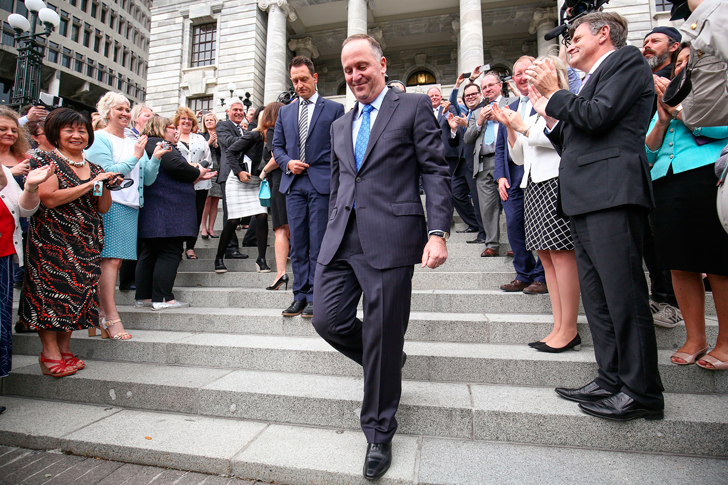
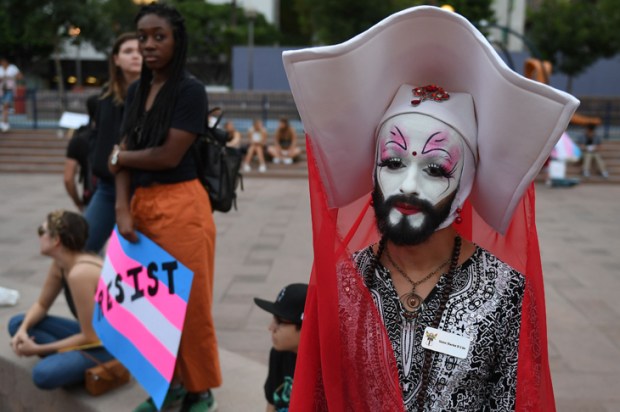
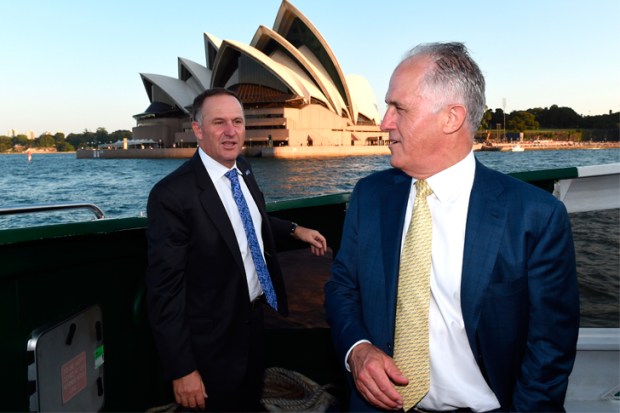
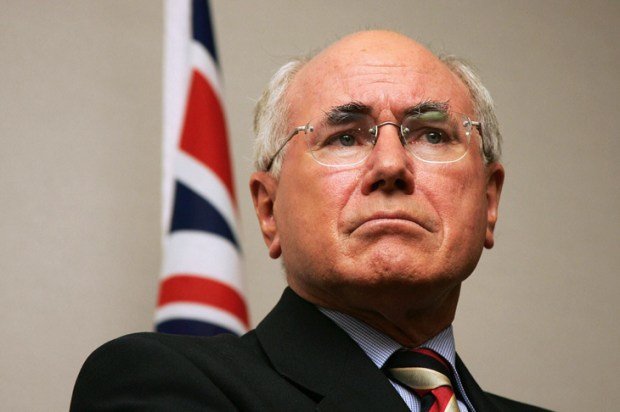
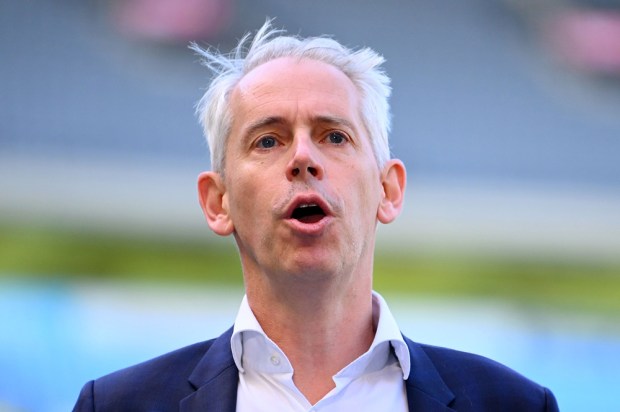








Comments
Don't miss out
Join the conversation with other Spectator Australia readers. Subscribe to leave a comment.
SUBSCRIBEAlready a subscriber? Log in